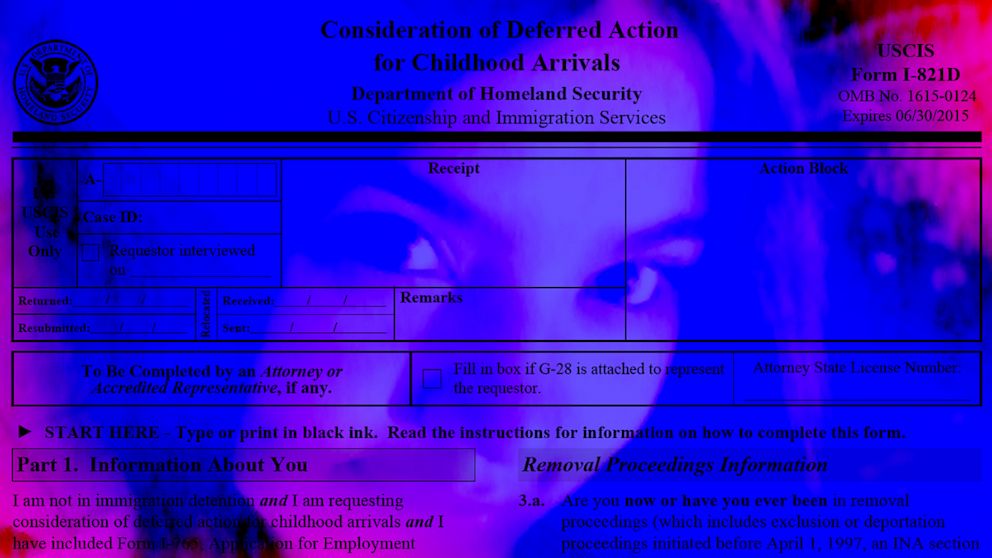Rejected From Deferred Action
On Deferred Action's first anniversary, this young man didn't make the cut.

Aug. 16, 2013— -- “When the president announced Deferred Action it was a really special moment for me and my family,” said William Palacios, who came to the U.S. from El Salvador at the age of 14.
“When we went to apply for Deferred Action, it was a really emotional experience because we knew it was going to change our lives,” William told Fusion. “We sent the application in and when I went through the fingerprinting process it was very emotional for all of us too.”
The Deferred Action for Childhood Arrivals(DACA) program that President Obama launched on August 15, 2012 was going to help William fulfill his dreams of going to college and being able to work so he could help his mother financially. DACA applicants who came to the U.S. before reaching their 16th birthday and have continuously resided in the U.S. since June 15, 2007 may qualify for temporary work permits and protections from deportation for two years.
William’s step-father, a landscaper, worked longer hours so they could save for the $465 application fee. His mother made and sold pupusas to friends and neighbors making ends meet. William said his family paid a lawyer an additional $300 to help with the application process.
“But then I got a notification that said my application was not approved because they needed additional documents,” William explained. “I felt sad, sin animo” he said in Spanish with his Salvadoran accent, meaning he had lost courage.
A year after Deferred Action launched, William is still waiting for an answer. U.S. Citizenship and Immigration Services (USCIS), which oversees the DACA application process, has requested additional evidence that proves Williams was in the country in 2011, the year following his high school graduation.
USCIS would not comment on William’s case.
William, 22, says he's experiencing difficulty finding ways to prove he was in the U.S. in 2011. This issue is not unheard with applicants his age.
A study that analyzed 465,509 DACA applications from August 15, 2012 to March 22, 2013 found more than one-third of applicants were between 15 and 18 years old. The study was conducted by the Brookings Institute, a nonpartisan research group.
“One of the reasons why we’re finding that DACA applicants are on the young side is because it’s much easier to document your experience in the U.S. if you’re younger,” the report's co-author Audrey Singer told Fusion. “If you've had a shorter amount of time here and if you’re in high school or recently graduated it will be much easier to document that as well.”
“But for a lot of people these materials are not easy to gather, their names are not on utility bills, they have pre-paid phone contracts and it can be a real challenge for people,” Singer added.
William is currently in the process of gathering evidence that proves he was in the country in 2011.
Rejected Before You Even Apply
When Noemi Romero heard about the Deferred Action program she knew that we should have to come up with the $465 application fee on her own. At the age of 21, she went out looking for work and landed her first job as a cashier at Lam’s Supermarket in West Phoenix, Arizona.
“The first thing I thought when I heard about Deferred Action was that I needed to save money because I knew that I would qualify for all of the program’s requirements,” Noemi told Fusion. “But I didn't have the money, my parents weren’t working either and we barely had money for ourselves so I started looking for a job.”




